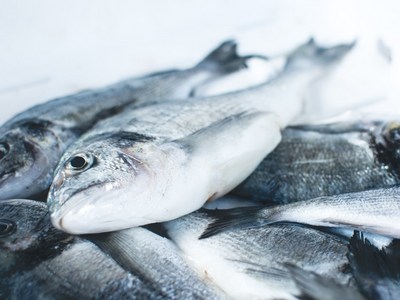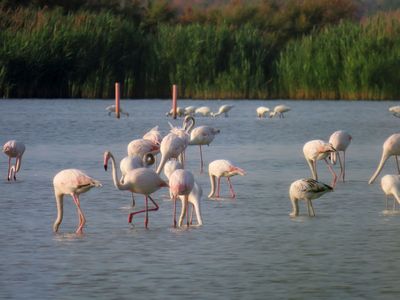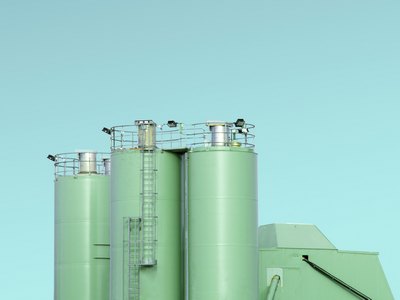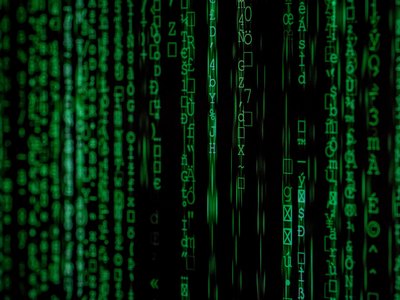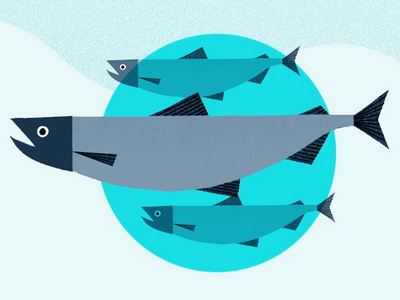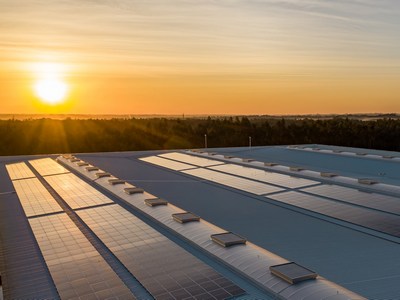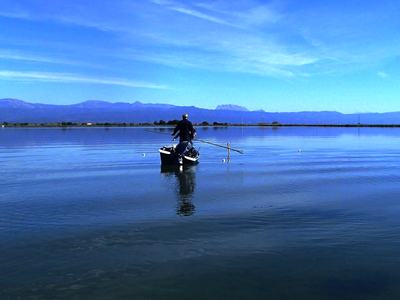Green and Blue Growth

Research Institute for Green and Blue Growth
Environmental technology and green economy
Enabling the uptake of climate information and services in real decision-making processes and finding resilient and efficient alternatives to our fossil-based economy are among the key challenges of our society.
Among the strategies currently explored are: the development of nature-based solutions aimed at improving resource and energy efficiency, the sustainable use of key enabling technologies including nanotechnologies, and the promotion of sustainable growth in the marine and maritime sectors (so-called blue growth).
Only a holistic approach that blends environmental sciences with geopolitical and economical studies can develop effective mitigation and adaptation strategies to climate change and other environmental challenges.
Keywords
Adaptation and resilience, Bio-economy, Blue economy, Blue growth, Circular economy, Decarbonisation, Green economy, Nanotechnologies, Nature-based solutions, Raw materials, Resource efficiency, Smart cities and communities, Sustainable growth, Sustainable company law, Systemic innovation
Coordinator
Research facilitators
Carole Maignan
Fulvio Grassadonio
Members
- AMADIO Emanuele
- BALDO Maria Antonietta
- BALLIANA Eleonora
- BARBIERI Elisa
- BEGHETTO Valentina
- BERTOLINI Camilla
- BIASIO Marco
- BIASIOLO Marco
- BRONDI Sonia
- BRUNELLI Andrea
- BUFFA Gabriella
- BULIAN Giovanni
- CANTON Patrizia
- CAPODAGLIO Gabriele
- CARRARO Carlo
- CAVINATO Cristina
- CAVRARO Francesco
- CHIESA Stefania
- COLOMBINO Annalisa
- CORAMI Fabiana
- COUTINHO DE LIMA Adriano
- CRESTINI Claudia
- CRISTIANO Silvio
- DAVIDE Marinella
- DEL VECCHIO Silvia
- FANTINATO Edy
- FIORANI Giulia
- FRANZOI Piero
- G. SALES Vilane
- GHEDINI Elena
- GIANNINI Valentina Luisa
- GIGLI Matteo
- GIUBILATO Elisa
- GOBBO Lorena
- IORI Giulia
- IZZO Francesca Caterina
- JACOMUZZI Alessandra Cecilia
- KARIMIAN Najmeh
- LAMON Lara
- LICATA Chiara
- LIUZZO Mirko
- MAIGNAN Carole
- MALAVASI Stefano
- MAURACHER Christine
- MENEGAZZO Federica
- MORABITO Elisa
- MORETTI Elisa
- PASTRES Roberto
- PASUT Wilmer
- PAVAN Paolo
- PELLIZZARI Julie
- PEROSA Alvise
- PRANOVI Fabio
- PRUSE Baiba
- QUAGLIATI Noemi
- RINALDI Chiara
- RODRIGUEZ PADRON Daily
- ROMANYUK Zhanna
- ROSCINI Mauro
- SARTORETTO Flavio
- SELVA Maurizio
- SEMENZIN Elena
- SFRISO Adriano
- SIGNORETTO Michela
- SOLE Roberto
- SORIANI Stefano
- STORTINI Angela Maria
- ULLAH Sana
- VALENTINO Francesco
- VIANELLO Rita
- VOLPI GHIRARDINI Annamaria
- VOMIERO Alberto
- YALEW Amsalu Woldie
- ZABEO Alex
- ZANARDI Chiara
High-impact and award-winning projects
FISH-MeeTing: Sustainable recovery and valorisation of fish wastes processing
FISH-MeeTing (FMT) aims at establishing a cross-border network for "brain circulation" amongst researchers of the Italian-Montenegrin academies (Ca’ Foscari University of Venice; Venice, Italy and University of Donja Gorica, Podgorica, Montenegro) in the field of sustainable recovery and valorization of fish processing waste. As a further target, FMT is finalized at creating the premises for an involvement of local small-medium enterprise (SME) including fish-processing/aquaculture factories, as well as waste management companies operating in coastal areas of the Adriatic-Ionian basin. After an initial qualitative and quantitative assessment of the fish waste valorization strategies already in place, FISH-MeeTing will propose sustainable, integrated innovative marine growth strategies by promoting sustainable treatments and valorization of fish processing residues, following a circular model of modern biorefinery units (BUs).
Researcher: Maurizio Selva
Duration: 01/10/2018 - 30/09/2020
LIFE FORESTALL: Restoration of alluvial forests and cladium mariscus habitats
The objective of the action "LIFE FORESTALL - Restoration of Alluvial Forests and Cladium
mariscus habitats in Ramsar and Natura 2000 sites" is to assess the impacts of the project conservation actions on the ecosystems functions and related ecosystems services (ES) in the study area, thus
contributing to meet to goals of the EU Biodiversity Strategy 2020, Target 2, which requires that ecosystems
and their services are maintained and enhanced. The action will apply the principles and methods of the EU initiative Mapping and Assessment of Ecosystems and their Services (MAES), according to which ES are classified into (i) provisioning, (ii) regulating and maintenance, (iii) cultural services In Valle Averto Oasis. These ES, selected based on a consultation with local experts, correspond to the ES potentially provided by the project’s target habitats; their actual relevance will be verified during the course of the project.
Website
Researcher: Fabio Pranovi
Duration: 27/11/2020 - 30/11/2023
GREENART - GREen ENdeavor in Art ResToration
European Cultural Heritage (CH) is a crucial resource that must be maintained, preserved and accessible, to counteract degradation enhanced by unfavorable environmental conditions and climate changes. Conservation methodologies lack durability, sustainability and cost-effectiveness, and are typically based on energy-consuming processes or non-environmentally friendly materials. Coping with these issues, GREENART proposes new solutions based on green and sustainable materials and methods, to preserve, conserve and restore CH: 1) Protective coatings based on green materials from waste and plant proteins, with self-healing and reversibility character, possibly functionalized with organic/inorganic nanoparticles to impart VOC capture, anti-corrosion and barrier behaviors; 2) Foams and packaging materials made by biodegradable/compostable polymers from renewable sources (polyurethanes and natural fibers) to control T/RH; 3) Consolidants based on natural polymers from renewable sources, to mechanically strengthen weak artifacts; 4) Gels and cleaning fluids inspired by the most advanced systems currently available to conservators, improving them according to green and circular economy; 5) Green tech solutions for monitoring CH assets non-invasively against pollutants and environmental oscillations. Life cycle Assessment and modeling will favor the “safe-by-design” creation of affordable solutions safe to craftspeople, operators and the environment, and minimize energy-consumption in monitoring museum environments.
Project website / EU Cordis database
Researcher: Elena Semenzin
Duration: 1/10/2022 - 30/09/2025
Funding: Horizon Europe - Culture, creativity and inclusive society
MODERATE: Marketable Open Data Solutions for Optimized Building-Related Energy Services
MODERATE will formalize a set of procedures and techniques that enable building owners, policymakers, facility managers, utility companies, etc. to openly share their data, gain insights, and make decisions while complying with regulations such as the General Data Protection Regulation (GDPR). Moreover, MODERATE will enable uniform access to heterogeneous data sources on buildings' performance, usually dispersed in several non-interoperable data silos. MODERATE will develop an open platform, embracing leading-edge technologies, such as artificial intelligence (AI), machine learning (ML), blockchain/distributed ledger technologies, the internet of things (IoT), and many more. This platform will enable its users to analyze real-time building data from various building systems and provide insight into the many dimensions of a building's performance. The use of synthetic data generation techniques, not yet widely applied in the construction industry, is one of the elements that allow open data sharing, enabling more reliable services and generating business opportunities.
Project website / EU Cordis database
Researcher: Wilmer Pasut
Duration: 01/06/2022 - 31/05/2026
Funding: Horizon Europe - Climate, Energy and Mobility
PollinAction - Actions for boosting pollination in rural and urban areas
The objective of the LIFE funded project PollinAction is to mitigate the pollination crisis by creating a green infrastructure (GI) network, made up of natural and semi-natural areas, in rural and urban landscapes in North-East Italy. This will involve habitat restoration and the implementation of nature-based solutions. The project is mainly aimed at converting arable crops and rural or urban marginal areas into key habitats for pollinators. To reach this objective, it will improve species-poor grasslands and landscape heterogeneity by creating connectivity among rural and urban areas as well as along road infrastructure and riverbanks. LIFE PollinAction will assess the ecosystem conditions and services and will implement payments for ecosystem services (PES) schemes. The definition of an urban planning of compensation measures at local scale will be also considered as well as the design of circular economy processes and close-to-market solutions to boost farmer competitiveness. The project will be replicated in a marginalised and abandoned area in the Aragon region of Spain. This will allow the effectiveness of GI to be evaluated in two areas with opposite dynamics (i.e. specialisation/intensification vs. marginalisation/abandonment).
Project website / EU LIFE Public database
Researcher: Gabriella Buffa
Duration: 01/09/2020 - 31/03/2025
Funding: LIFE
NewTechAqua: A sustainable, resilient and innovative European aquaculture
"NewTechAqua - New Technologies, Tools and Strategies for a Sustainable, Resilient and Innovative European Aquaculture" intends to expand and diversify EU production of finfish, molluscs and microalgae by developing and validating technologically advanced, resilient and sustainable new solutions. The organizational approach of NewTechAqua is to group the solutions in 6 different categories: feed, Industry 4.0, sustainable farming, genetics, new species and new products. They are validated on conventional (Atlantic salmon, rainbow trout, seabass and seabream) and emerging (greater amberjack, meagre, Senegalese sole and grey mullet) finfish species, molluscs (Pacific oyster, mussel) and microalgae.
Project website / EU Cordis database
Researcher: Roberto Pastres
Duration: 01/01/2020 - 31/12/2023
Funding: Horizon 2020 Societal Challenges - Food security, sustainable agriculture and forestry, marine, maritime and inland water research, and the bioeconomy
SunShine - Safe by Design Strategies for High Performance Multi-component Nanomaterials
SUNSHINE is an industry-oriented project, where leading research and technology organisations will cooperate with SMEs and large industries to develop and implement simple, robust, and cost-effective Safe and Sustainable by Design (SSbD) strategies for materials and products incorporating advanced multi-component nanomaterials. To this end, the project will establish a user-friendly e-infrastructure to foster dialogue, collaboration, and information exchange between actors along entire product supply chains. The SSbD strategies will modify products and processes involving advanced multi-component nanomaterials in order to reduce their potential for release or hazard potency. The goal is to develop technologies that are safe and sustainable, but also retain the desired functionality for their intended uses. In addition to promoting safe and sustainable innovation, SUNSHINE will facilitate a two-way dialogue between innovators and regulators, which can help to raise awareness and address regulatory concerns in the early stages of innovation. Ideally, this can shorten the time of novel nanotechnology products to reach the market.
Project website / EU Cordis database
Researcher: Antonio Marcomini
Duration: 01/01/2021 - 31/12/2024
Funding: Horizon 2020 Industrial Leadership: Leadership in enabling and industrial technologies - Advanced materials
LIFE TRANSFER - Seagrass transplantation for transitional Ecosystem Recovery
The LIFE-TRANSFER project aims to trigger the process of recolonization of aquatic phanerogams in selected Mediterranea lagoons through the transplanting of small sods and rhizomes of Zostera marina, Zostera noltei, Ruppia cirrhosa and Cymodocea nodosa. In each lagoon, the species previously present will be transplanted, to promote the natural propagation capacity through seed production and dispersion. The intervention technique provides transplantation exclusively by hand with a reduced amount of material from donor sites, with advantages in terms of environmental impact, costs and of application on a larger scale.
Project website / EU LIFE Public database
Researcher: Adriano Sfriso
Duration: 01/12/2020 - 30/11/2025
Funding: LIFE
DURASOFT: Enhancing traditional wooden structures durability
DuraSoft ("Tecnologie innovative per migliorare la durabilità delle strutture tradizionali in legno in ambienti socioecologicamente sensibili") aims to give indigenous coniferous woods and swamp straws such durability to make their use sustainable and compatible with the conservation of environment and with the safeguard of the Wood cultural Heritage. In this way there would be an economic impact on businesses both direct (production and marketing of products) and indirect (promotion of fishing, agriculture, maritime and tourist transport).
Website
Researcher: Anna Volpi Ghirardini
Duration: 01/03/2020 - 01/03/2022

